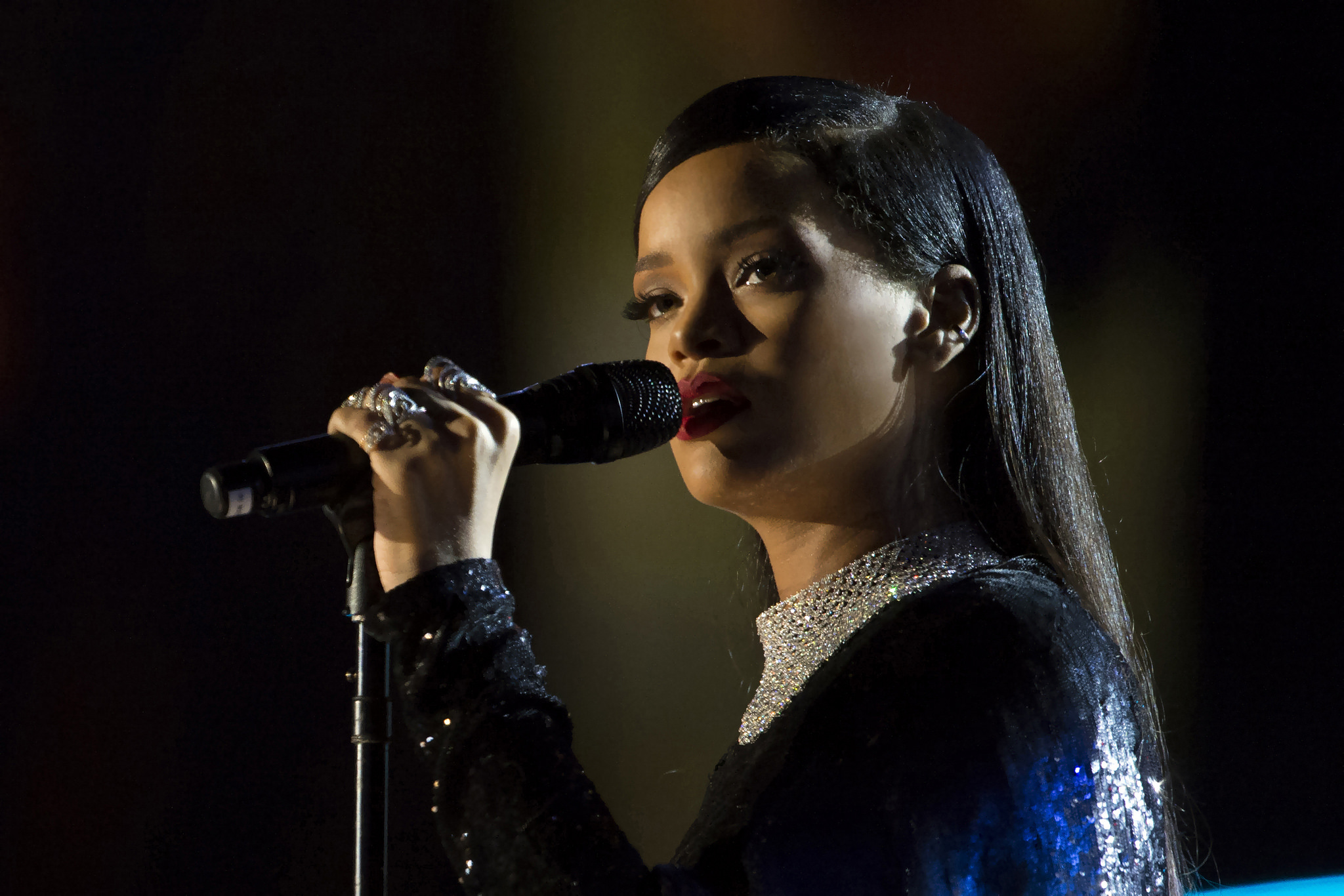Rihanna’s BBHMM and the Separation of Morality and Feminism

Image: By EJ Hersom/DoD News via CC-BY-2.0
Rihanna’s newest music video, Bitch Better Have My Money, now with 19 million views on YouTube, has been the latest hot topic of debate amongst the feminist community. Tumblr is, to put it finely, losing its shit over the singer’s seven-minute long brazen display of wealth, power, and, most importantly, pure violence. The video is oozing with glamour, and at first watch, it pretty much just looks like Rihanna establishing dominance, perhaps in the context of the music industry, or in the context of life in general – the whole thing is a wild, drug-fuelled power trip. However, the plot centers around Rihanna kidnapping the rich white wife (played by model Rachel Roberts) of her accountant, because of whose connivery she’s lost all her money. She and her cronies then proceed to strip her, hit her on the head with bottles, and nearly drown her in a pool. Finally, when that doesn’t work, Rihanna goes to straight to the accountant himself and, presumably, kills him. Then we see her lying naked, covered in blood in a trunk of money, smoking. Needless to say, the violence is fairly in-your-face, and Rihanna is not apologetic about it by any standards – in fact, the violence is highly glorified. This is what sparked the ongoing debate – is BBHMM violently misogynistic or radically feminist?
This article does not so much concern itself with that question. In my opinion, a lot of people talking about this video need to reconsider what they believe to be “radically feminist.” This video tackles a lot of issues – gender, race, and financial empowerment being at the fore. There are people who call this video anti-feminist. I’m open to that possibility, but not for the reasons a lot of them propose. For example, Helen Lewis, in her article for the New Statesman, wrote: “It was not very feminist — not even very hashtag feminist — of Rihanna to “torture that poor rich lady”. That is because it is not very feminist to torture women. Even if they are white. Even if they are rich. Even if you are a woman yourself. Sorry if this comes as a surprise.” And she’s right when she says it’s not okay to torture women. But I would add a little to that: it is not okay to torture women because they are women. Does that mean it’s okay to torture women for other reasons? No, because torture is morally wrong. However, this is where putting on the feminist lens gets mixed up with putting on the morality lens. Let me elaborate:
Fact: it is not okay to torture women
Fact: it is not okay to torture women just because they are women
Fact: it is not okay to just torture people in general
HOWEVER, this last fact strays from the realm of feminism and enters the realm of morality. Let’s also keep in mind that Rihanna is not actually torturing this lovely woman, so the question of morality here lies in the depiction of the act, not the act itself. This is a music video, a work of art that comes with enough prior warning of violence in it. It depicts the torture of a woman, the reason being that she is the wife of someone Rihanna is ultimately trying to get to. Yes, this falls under the umbrella of violence against women. And yes, morally speaking, this is not something even remotely laudable. But if you look at the video as a whole, as an art piece, I would argue that it is abso-fucking-lutely feminist, but not in a way that is easy to stomach. Here’s why.
I believe that the heart of feminism lies in plurality. Many times, the feminist narrative gets overrun with depictions of strong, smart, capable, intelligent women – and understandably so. The conception of women existing simply for their looks is one that needs to be actively destroyed. However, we must not lose sight of the fact that the ultimate message is not “Women are strong and amazing too!” Our goal is simply to establish that women are human too. The male narrative is complex and varied – in entertainment and literature, we see male protagonists and characters who span the spectrum of human existence, from strong to weak, from intelligent to not-so-intelligent, from capable to useless, from (conventionally) good-looking to ugly, fat to thin. Men are, quite simply, humanized. Women are less so. Women are predominantly seen in roles in which their womanhood, or the very fact that they are a woman, is why they are there. They are mothers, sisters, girlfriends, wives, never just characters who happen to be women. They need a reason to be women. And on the other hand, we have the trope of the “strong female character” who is virtuous, brave, intelligent – positive depiction, yes, but my point is that we don’t have enough of the opposite end of spectrum, or anything in the middle. This is what BBHMM successfully introduces.
Rihanna’s actions are morally quite repugnant. She is probably not supposed to be a likeable person with many redeeming qualities – in this video, she’s basically just a money and power-hungry, obnoxious woman with an agenda. Great! It’s a seven-minute music video, not a full-length feature film with excellent characterization and script. Personally, as I watched the video, I did not really like what was going on. It did not “give me life.” But hey – pluralistic depiction for the win! I want to see more unlikeable women on my screen because guess what – women can be pretty despicable sometimes because human beings can be pretty despicable sometimes, and women, surprise surprise, are human beings. This is why characters like Amy in Gillian Flynn’s Gone Girl, or pretty much the entire cast of Orange is the New Black, are so important, because they establish this very fundamental truth.
However, the violence against one woman is not the only issue in this video. There’s also the fact that she’s a white, rich woman, and Rihanna is black. There’s also the fact that the violence against her is sexualised, but the violence against the white man is not. There are issues to be talked about there, but I will be the first to admit that race dynamics are not my field of expertise or experience, so I will let someone else more qualified speak for me. (Janell Hobson wrote a great article for Ms. Magazine on the racial angle in the video: read it here.)
Yes, mistakes have been made in this video. A woman is depicted being harmed in a sexualised manner by another woman. The act of sexualised torture, in itself, is not feminist at all. And when I say that, I mean that in the current climate of our society, sexualising a woman’s torture is not a smart idea as it reinforces patriarchal ideas. But Rihanna’s depiction of the act and herself as the perpetrator, in this particular video, is feminist in the sense that it is pluralistic. As Simone de Beauvoir said, “Half-victim, half-accomplice; like everyone else.”
So, to sum it up: this video is a step forward in the sphere of pluralistic depiction of women. It may be a step back in other respects. But it is not anti-feminist simply because Rihanna’s actions are morally wrong. Condemning this video from the moral point of view is a very, very different debate to be had another time, but let’s not get the two mixed up.




